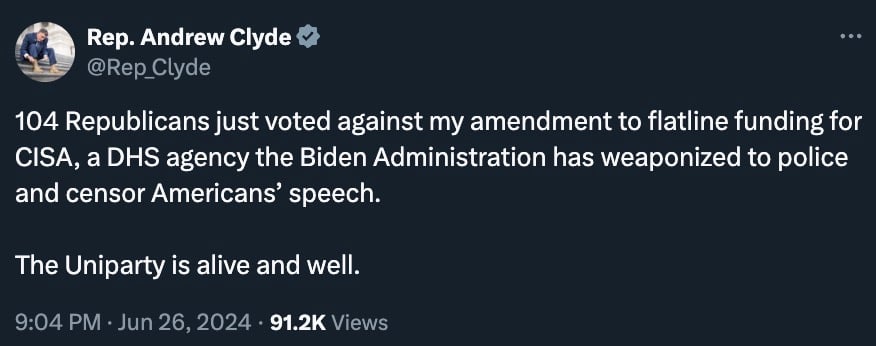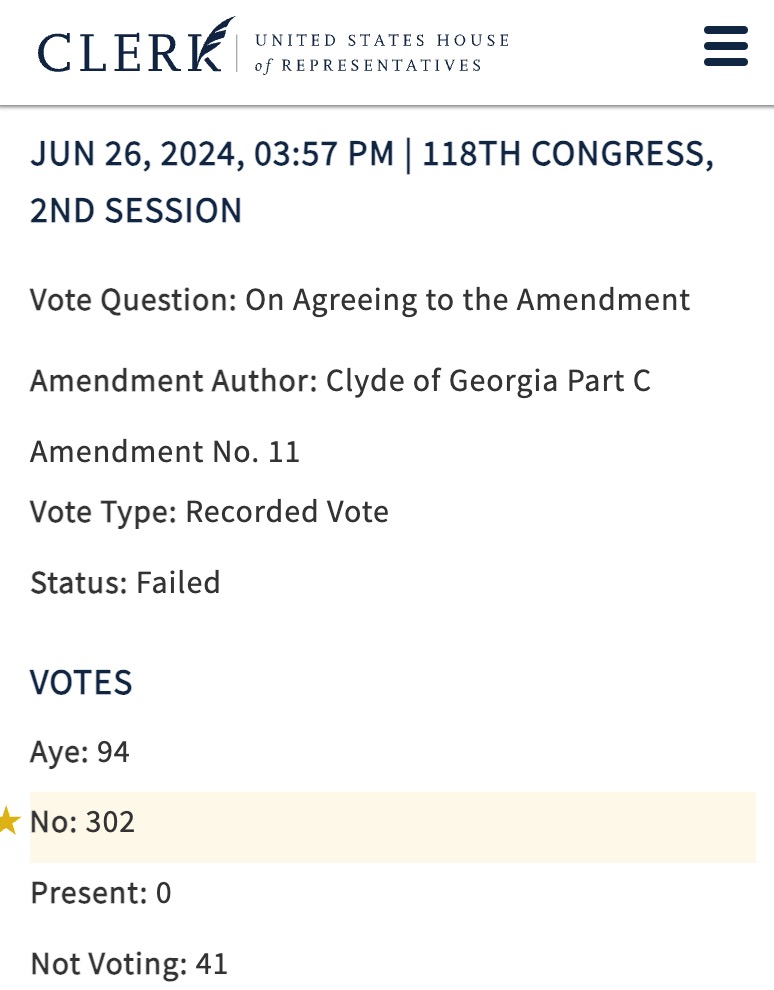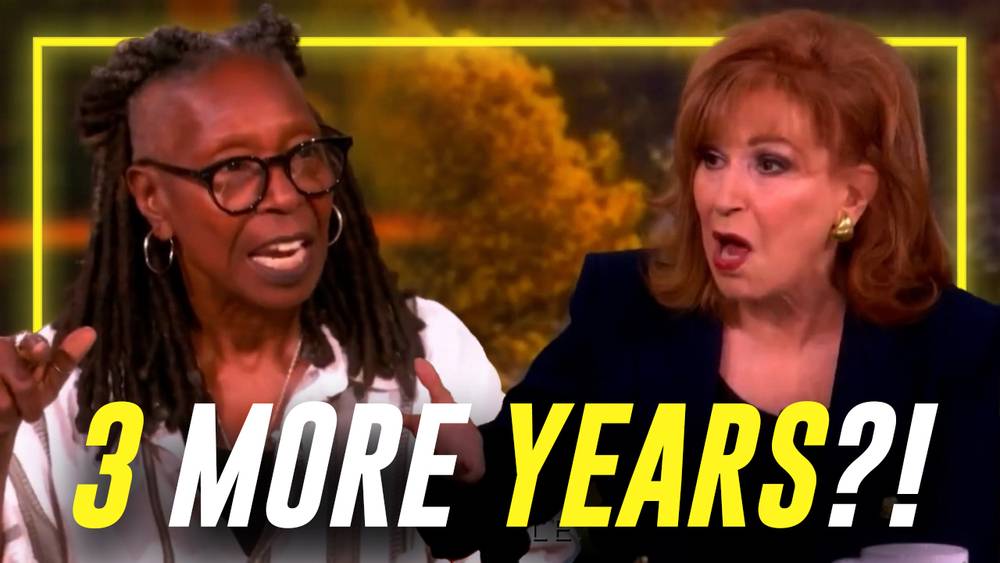104 Republicans and 198 Democrats voted to uphold a proposed budget increase for the Cybersecurity and Infrastructure Security Agency (CISA) in the defense appropriations bill. Representative Andrew Clyde from Georgia proposed an amendment to freeze CISA’s funding at its 2024 level, which would reduce the budget by just over 2% to $2,379,485,00. During a forceful speech on the House floor, Clyde criticized the agency for misusing its resources to suppress dissenting opinions.

The vote came just following the Supreme Court siding with the Biden administration’s partnership with tech giants to encourage the suppression of social media content, overturning the injunction by alleging that the case lacked standing.

Congressman Clyde asserted that there was no justification for the agency’s enlarged financial scope to further police speech under the guise of security.
Despite Clyde’s strong arguments, the amendment failed when 104 of his Republican peers joined Democrats in rejecting the budget cut.
This legislative moment coincided with a pivotal Supreme Court ruling in Murthy v. Missouri, delivering a 6-3 decision that enabled continued governmental suppression of speech in collaboration with Silicon Valley, ahead of the 2024 electoral cycle.
CISA has faced accusations of encouraging censorship, particularly from reports issued by the House Judiciary Committee. These reports claim that CISA, a branch of the Department of Homeland Security, has expanded beyond its original mandate of protecting critical infrastructure into areas of censorship, particularly on social media platforms. According to these reports, CISA colluded with Big Tech companies and utilized third-party nonprofits to indirectly censor speech, which critics argue undermines First Amendment protections.
Key findings from the reports include that CISA:
- Relocated its censorship operations to a CISA-funded nonprofit after facing legal challenges, implicitly acknowledging the unconstitutionality of these activities.
- Attempted to mask its involvement in censorship to avoid the appearance of propagating government propaganda.
- Developed a response strategy that involved labeling content as misinformation or disinformation, which has been criticized for potentially infringing on free speech rights.
These allegations stem from broader scrutiny under the theme of government-induced censorship, where federal agencies are accused of using their power to suppress certain viewpoints or information on social media under the guise of combating misinformation. The investigation into these practices is ongoing, with more details emerging as documents are reviewed and more information comes to light.




